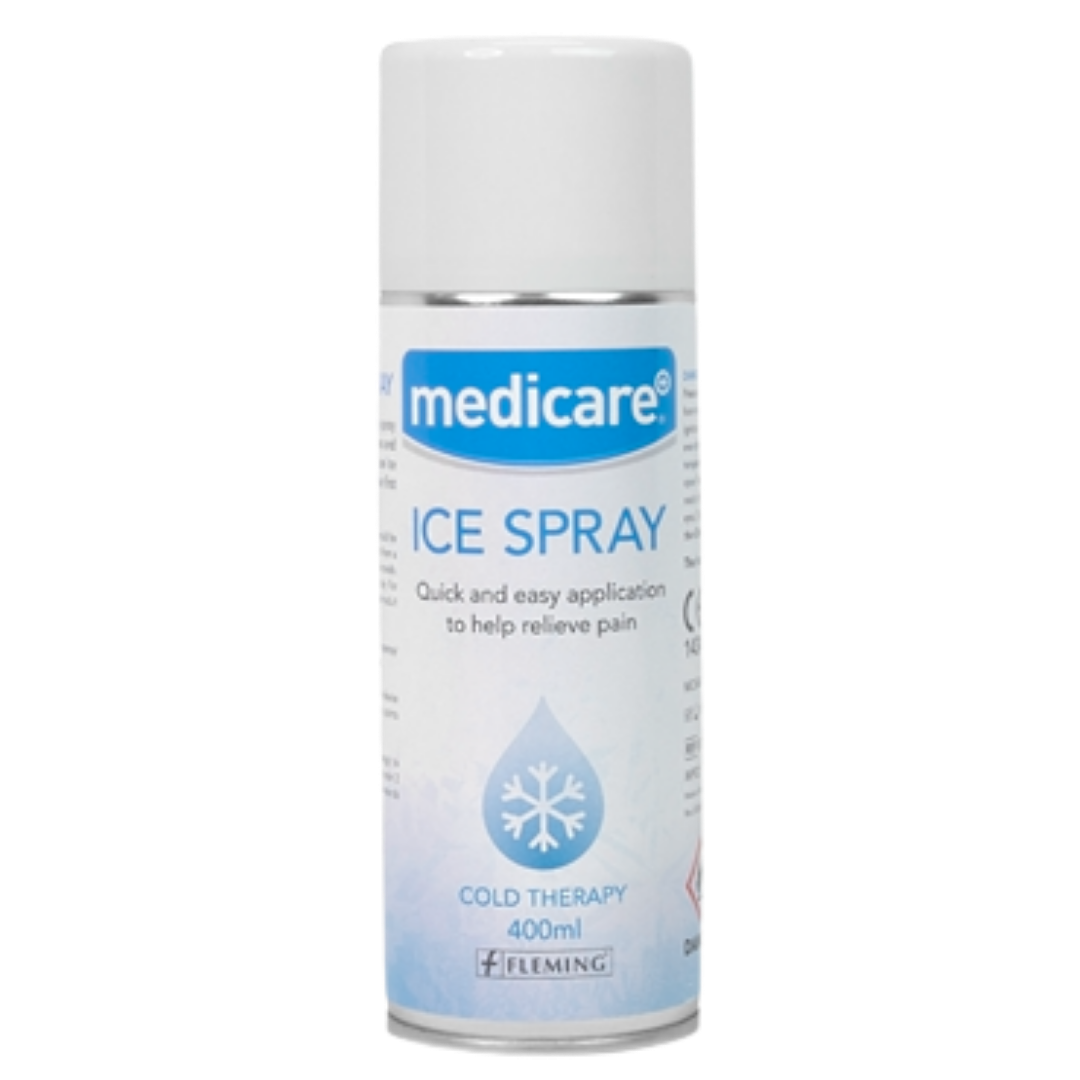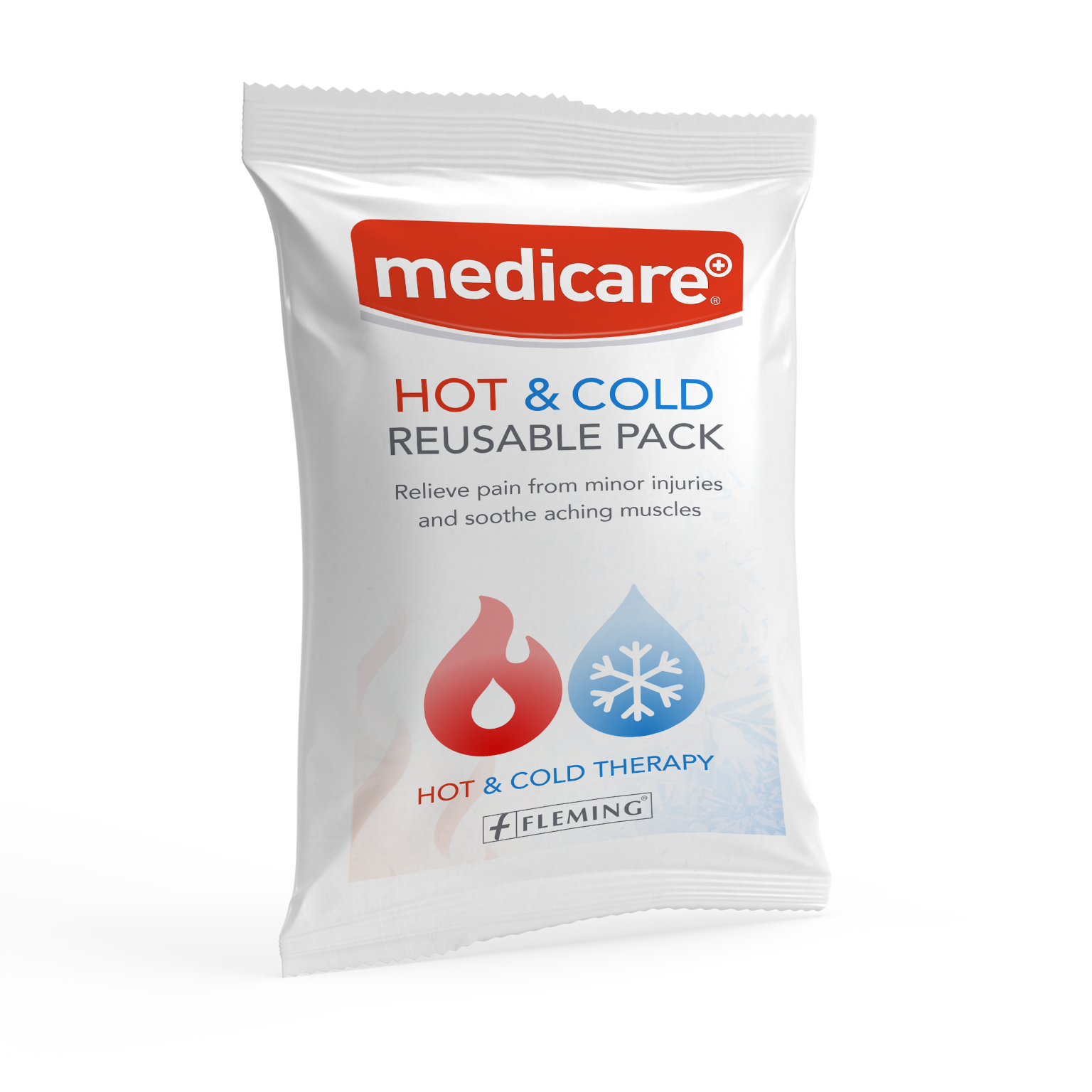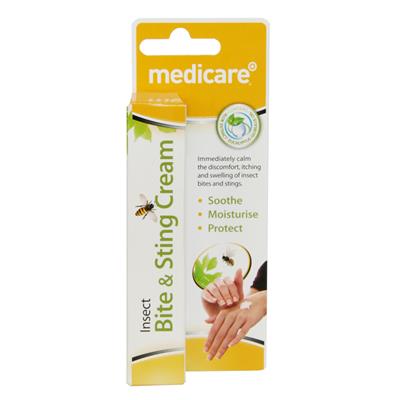Headlines
- Advanced Footcare Solutions: Use Cases Explained
- Keeping Customers Covered: How Pharmacies can address the Summer Burn Surge - A clinical and practical guide for pharmacy teams
- Fleming Medical Achieves ISO 13485 Certification – Reinforcing Our Commitment to Patient Safety and Quality
- Gentle Daily Ear Care with Medicare Ear Spray
- Breathe Easy with Medicare Nasal Spray
Be Summer Rescue Ready: Bite & Sting First Aid
19 July 2022

Although most bites and stings are harmless and will only leave mild symptoms such as itching and swelling, it is important to know how to effectively treat bites and stings and how to spot an allergic reaction.
Download our useful A4 info sheet that contains all you need to know about bites and stings at a quick glance.
Download Bite & Sting Info Sheet
How to Protect Yourself from Bites & Stings
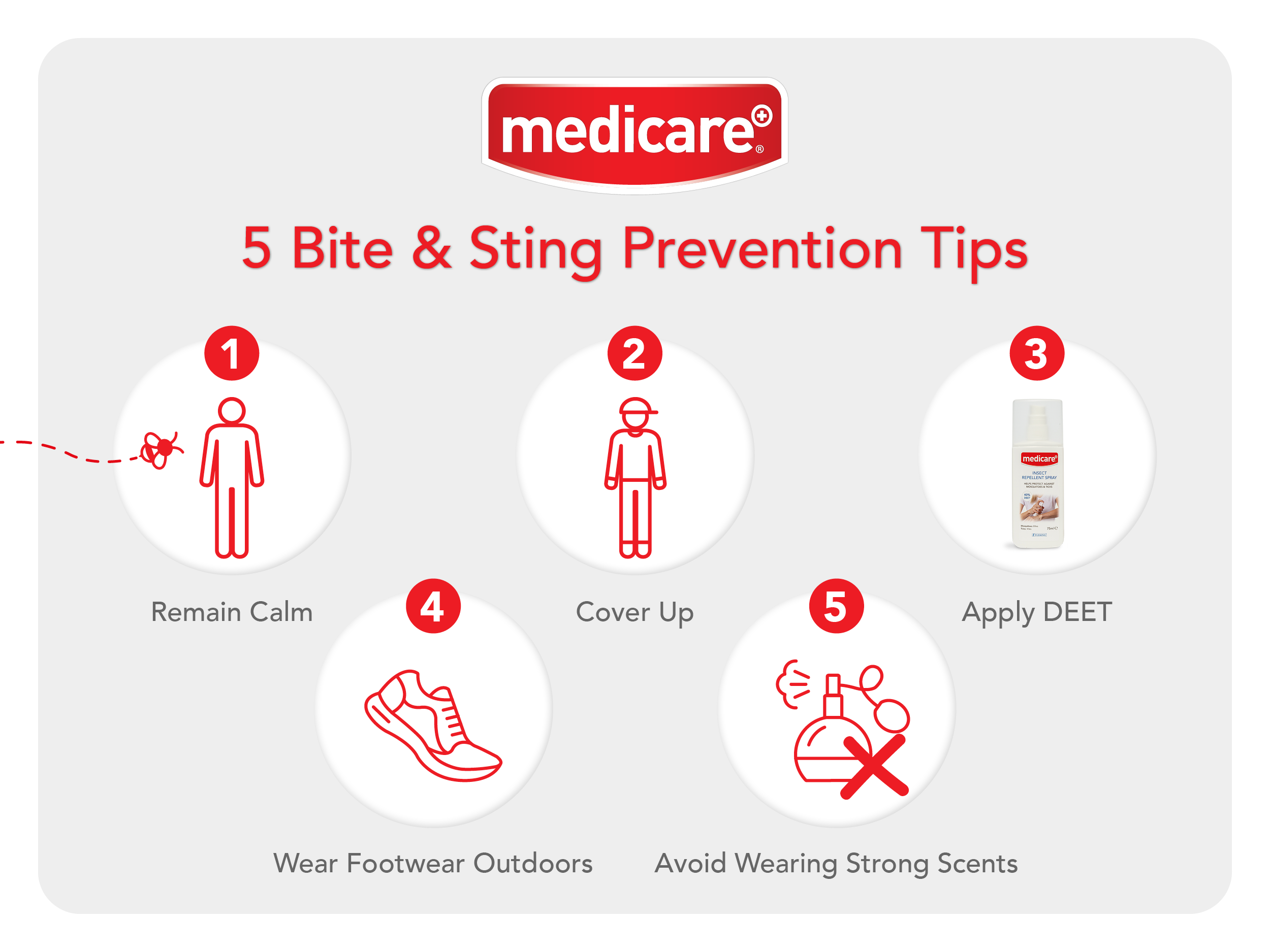
- Remain Calm: If you encounter a bee, wasp, or hornet moving around, panicking will make them feel as though they're under attack and they will be more likely to sting.
- Cover Up: Wear long sleeves clothes and pants to protect exposed skin.
- Protect Yourself: Apply a DEET spray 10 minutes before leaving the house for ultimate protection against a variety of insects including mosquitos, ticks, wasps, bees, etc. The Medicare DEET spray comes in 3 different strengths so you can choose a strength that works for you. Check out our blog post on Tick Bite Prevention & Treatment to find out about our DEET Spray and its uses.
- Wear Footwear Outdoors: Protect your feet from being bitten/stung especially in grassy areas.
- Avoid Wearing Strong Scents: Wearing strong scented perfumes, deodorants, body creams or gels can attract insects so avoid where possible.
How to Treat Bites & Stings
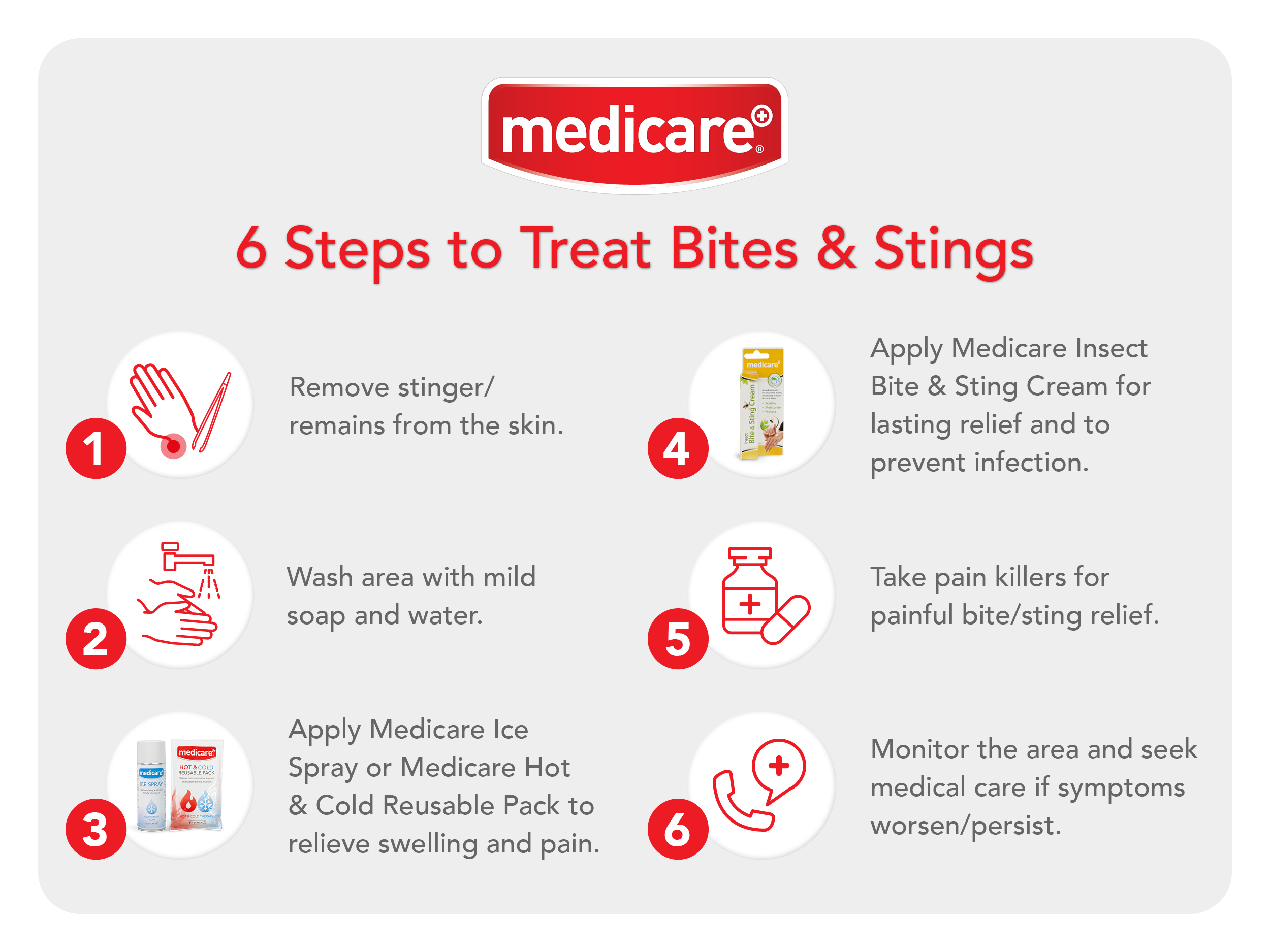
Useful Products for Bite/Sting Relief:
It is a good idea to ice the area after a bite/sting. This will help to bring down swelling, reduce pain and the urge to itch the area. The Medicare Ice Spray provides fast and effective relief to help numb the area and reduce swelling.
The Medicare Reusable Hot/Cold Pack gives quick relief to insect bites/stings. Simply leave the pack in the freezer and use when needed. Ice bite/sting for 10-20 minutes or for as long as needed for cooling relief, then place back in freezer for re-use.
The Medicare Insect Bite & Sting Cream gives relief from a variety of bites and stings including mosquitos, wasps, horseflies - even jellyfish and nettle stings. It helps to ease irritations and itching while promoting quicker healing to the skin. This cream is not advised to use on tick bites. For tick treatment tips, read our Tick Bite and Prevention blog post.
Remember, most bites/stings are harmless, and should clear up within 10 days of treatment. However, if you experience any of the following symptoms after a bite/sting, it is best to seek advice from your pharmacist or GP.
- If symptoms persist and show little to no signs of improvement
- If you think the bitten/stung area has become infected
- If you notice an unusual discolouration of the skin
- If you experience pus or increasing pain, swelling or redness in the area
- If your symptoms include high temperature and other flu-like symptoms
- A suspected allergic reaction to the sting/bite
- An accelerated heart rate
- Swelling in the throat, mouth or face
- Dizziness/faint feeling
- Loss of consciousness
Follow us on social media:
Useful Websites:
- https://www2.hse.ie/conditions/insect-bites-stings/
- https://www.nhs.uk/conditions/insect-bites-and-stings/treatment

 Fleming Medical UK
Fleming Medical UK

